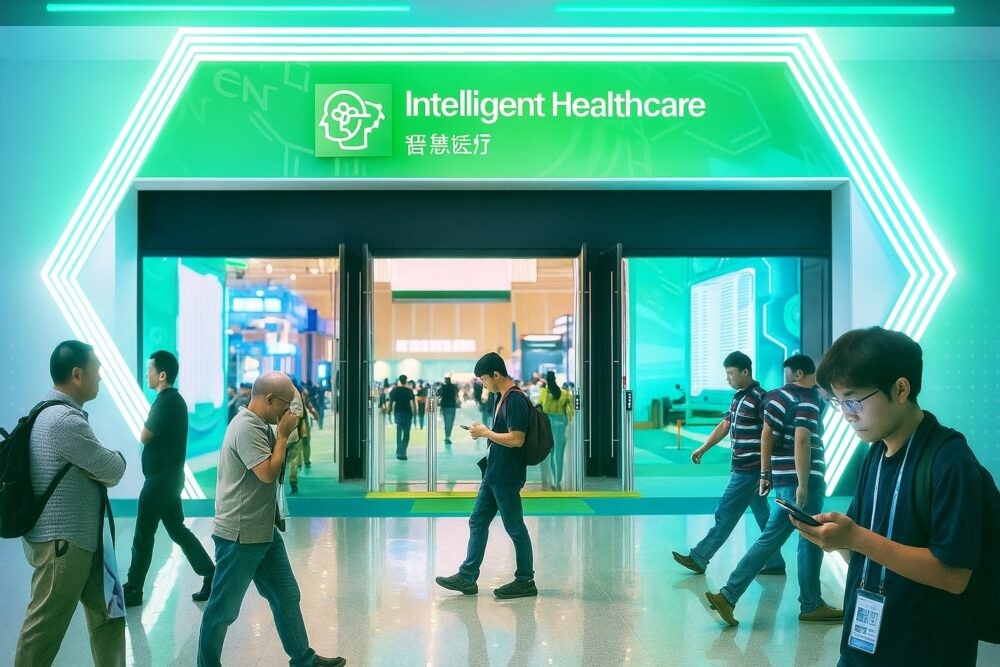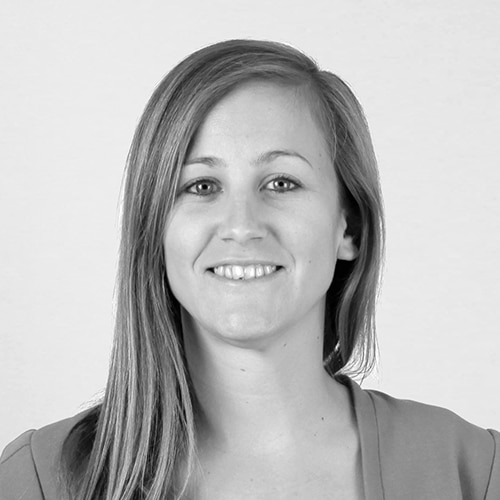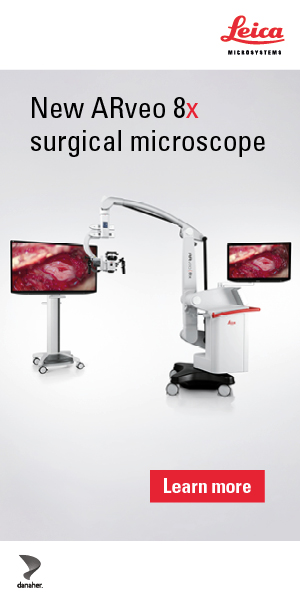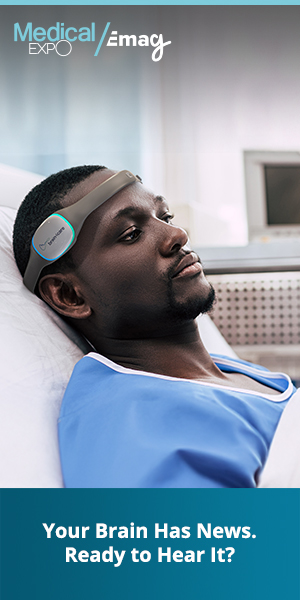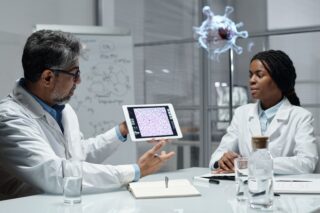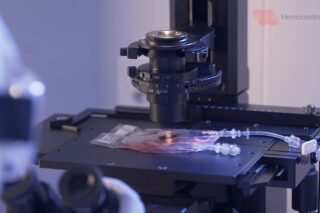From radar-guided heart monitoring to physiotherapy robots, the 138th Canton Fair spotlights a new era of precision and preventive medicine.
Intelligence meets innovation at the 138th Canton Fair — the debut of its intelligent healthcare exhibition — where precision, prevention, and automation took center stage. From AI-driven diagnostics to precision health monitoring, the CF organiser is focused on the future of healthcare by bringing the first-ever intelligent healthcare zone to the event.
Among the standout exhibitors: gold-winning Radio Sensing AI, showcasing a radar-based cardiac and sleep health monitoring system; MedValley Technology with next-generation physician training tools; DeyeeRobot physiotherapy robotics and Diagens’ “KayoFlow” fully-automated unattended cell experiment line. Together, they reflect how AI-powered tools and automation are reshaping medical workflows.
WATCH our video tour of the Intelligent Healthcare exhibition here.
EMAi by Radio Sensing AI: The Pulse of Prevention
Zhongke Radio Sensing AI (Guangzhou) Co., Ltd. specializes in electromagnetic AI (EMAI) technology. It drew crowds at the Canton Fair with what many called the most forward-looking leap in non-contact health monitoring. Awarded gold at the 2025 Genève International Exhibition of Innovations, itss radar-based system tracks cardiac activity and sleep health in real time without a single wire or wearable.
Radio Sensing AI describes its mission as “bringing radar sensing from the lab to everyday life.” The company’s underlying technology uses millimeter-wave radar and AI algorithms to capture micro-movements of the chest and body, translating them into heart rate, respiration, and heart rate variability data. The result: a continuous stream of physiological insights that can warn of arrhythmias, sleep apnea, or stress disorders long before symptoms become evident.
The implications for preventive cardiology are profound. Contactless monitoring offers a future where patients can be observed safely from home—no adhesive sensors, no discomfort, and potentially no missed warning signs. As hospitals and clinics wrestle with the challenge of long-term patient management, the company’s approach offers a vision of seamless, invisible care—medicine that watches quietly but acts swiftly.
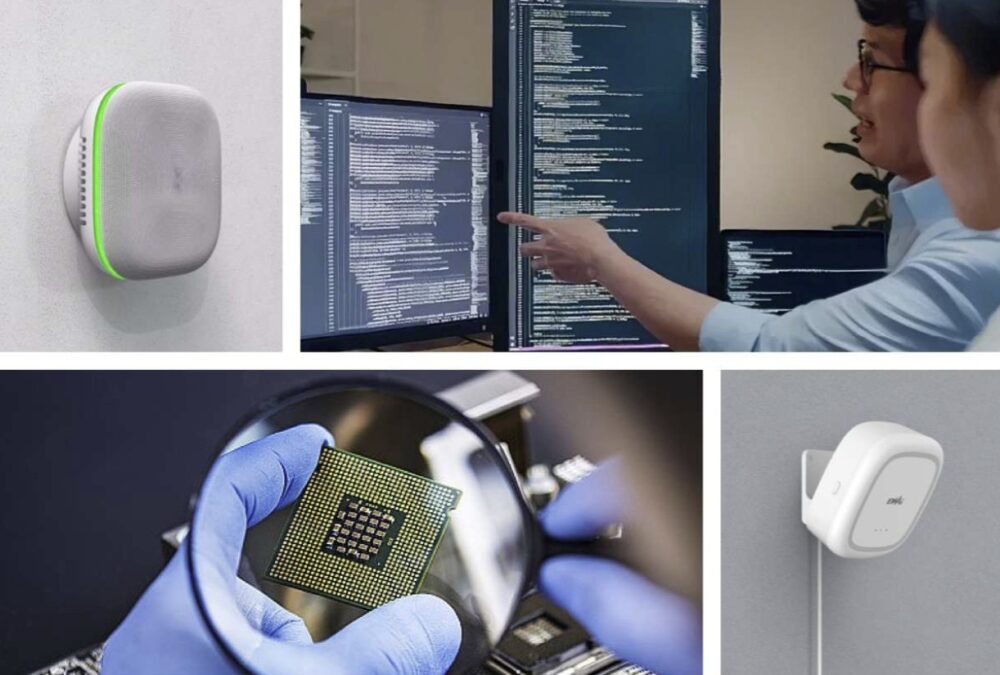
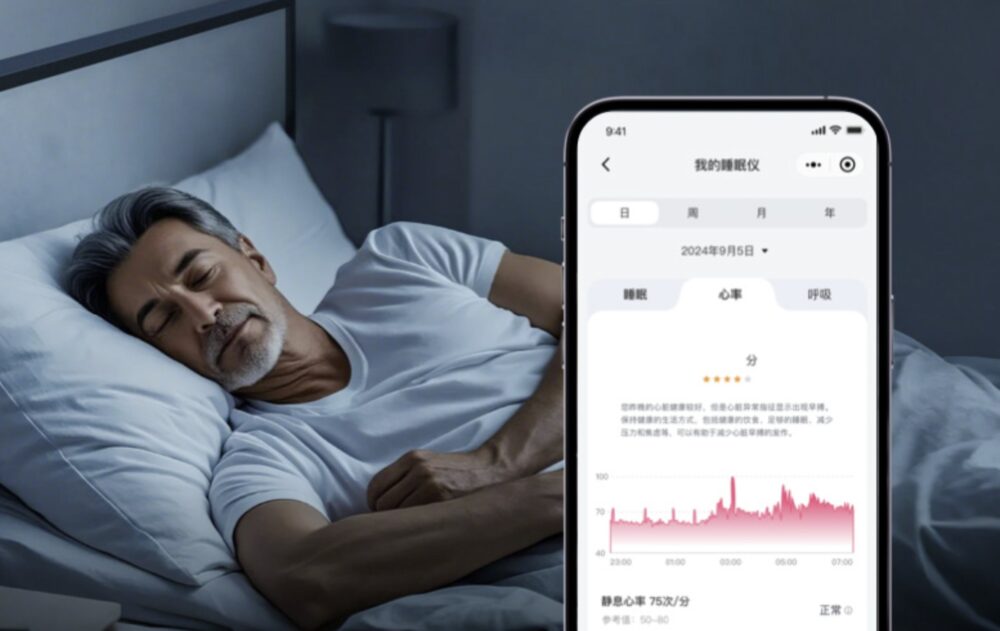
MedValley Technology: Assisting Physicians
Across the exhibition hall, Shanghai Huiyi Gu Information Technology Co., Ltd., better known as MedValley Technology, took a different route toward smarter healthcare—equipping physicians themselves with sharper tools. MedValley’s TCR Diagnosis Simulation System turned heads for its realism: an immersive platform that uses AI-driven simulation to help doctors practice and refine diagnostic reasoning, especially in complex areas like mouth and throat analysis.
Complementing the simulation system was MedValley’s finger- and palm-based full-body analysis device, which condenses health evaluation into a matter of seconds. Using multi-spectral sensors and AI modeling, it analyzes the subtle signals in skin and circulation to provide rapid insights into systemic health. While the company hasn’t disclosed the full algorithmic details, its ambition is clear: to make physical assessment faster, smarter, and more accessible.
For clinicians and educators alike, MedValley’s dual focus—training and rapid diagnostics—underscores a broader shift in healthcare: preparing human intelligence to work in tandem with artificial intelligence.
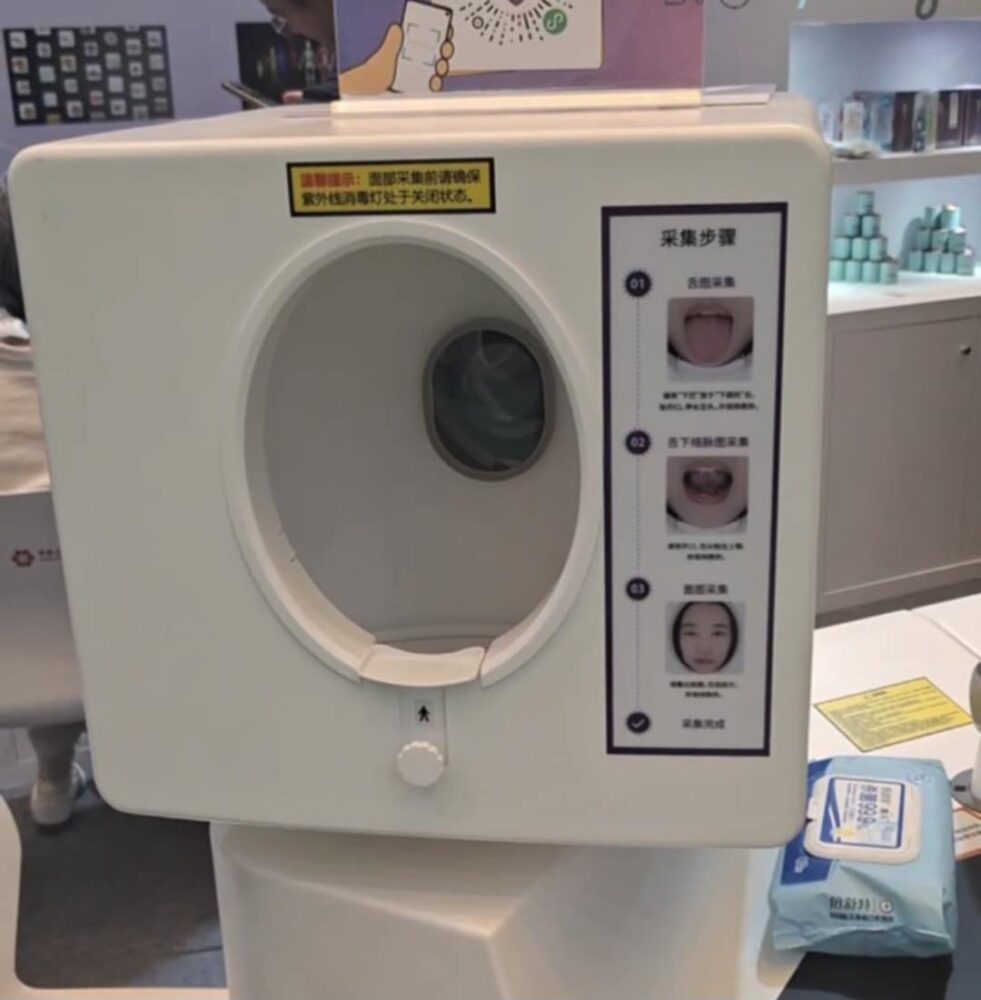
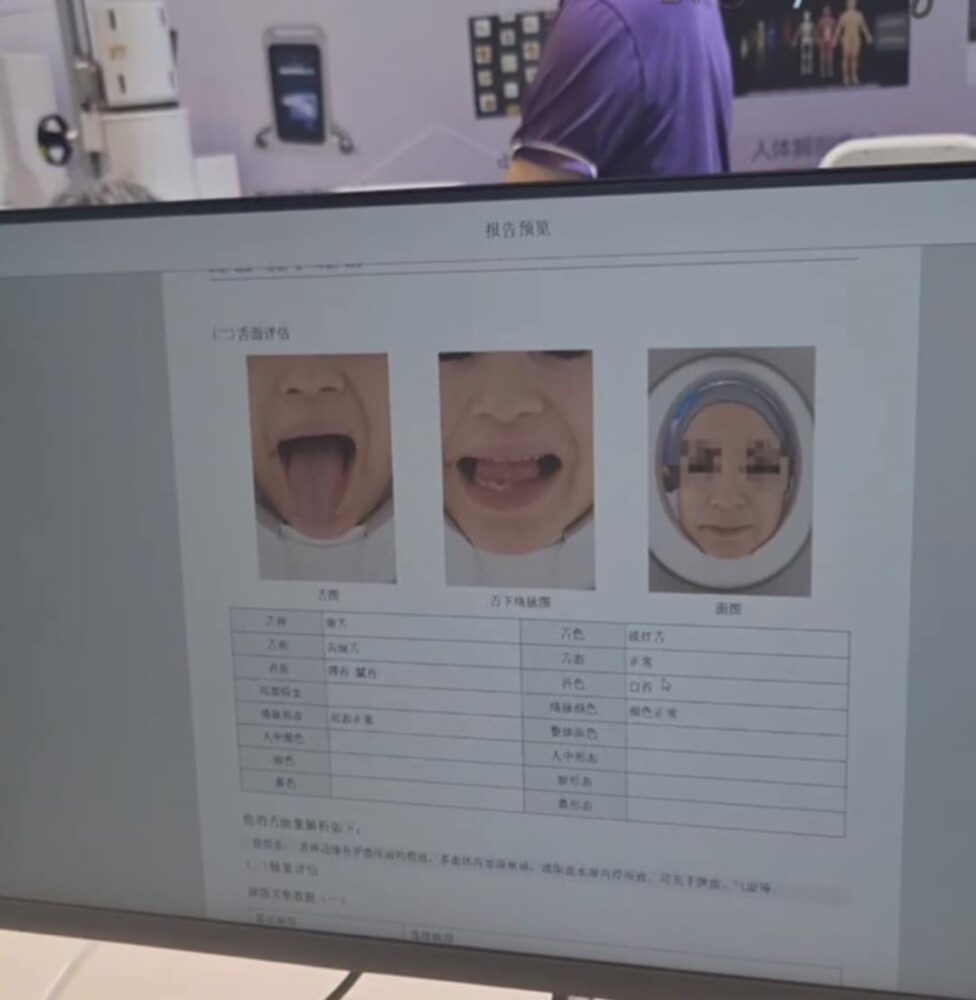
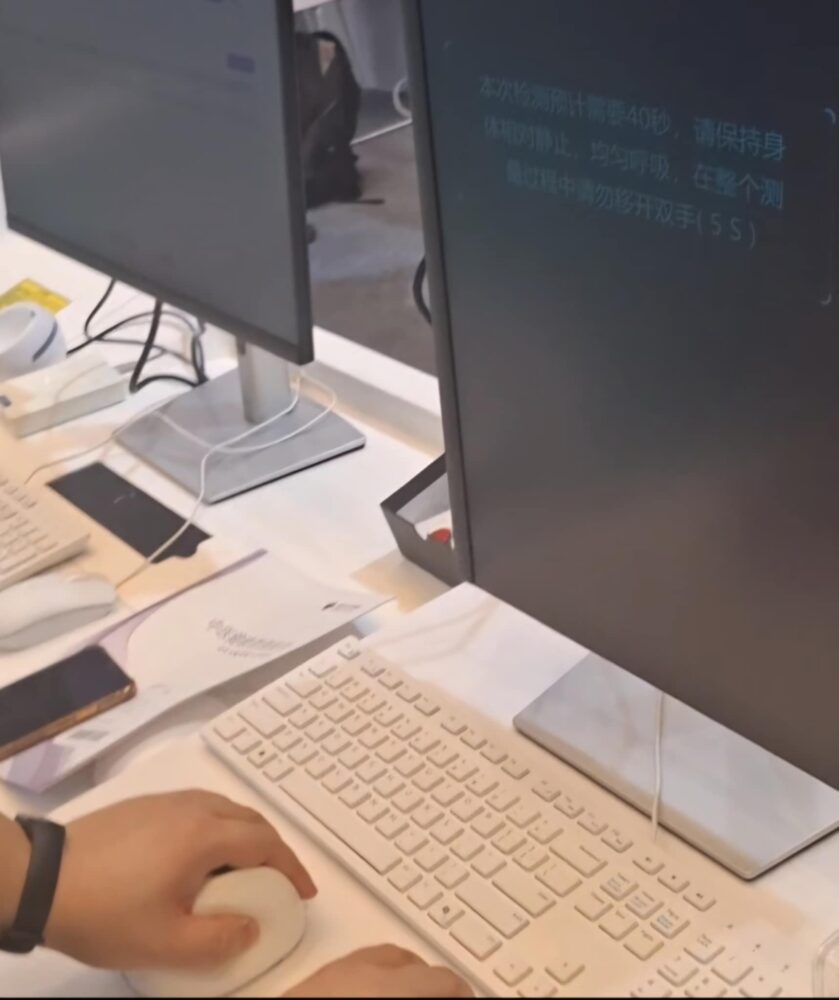
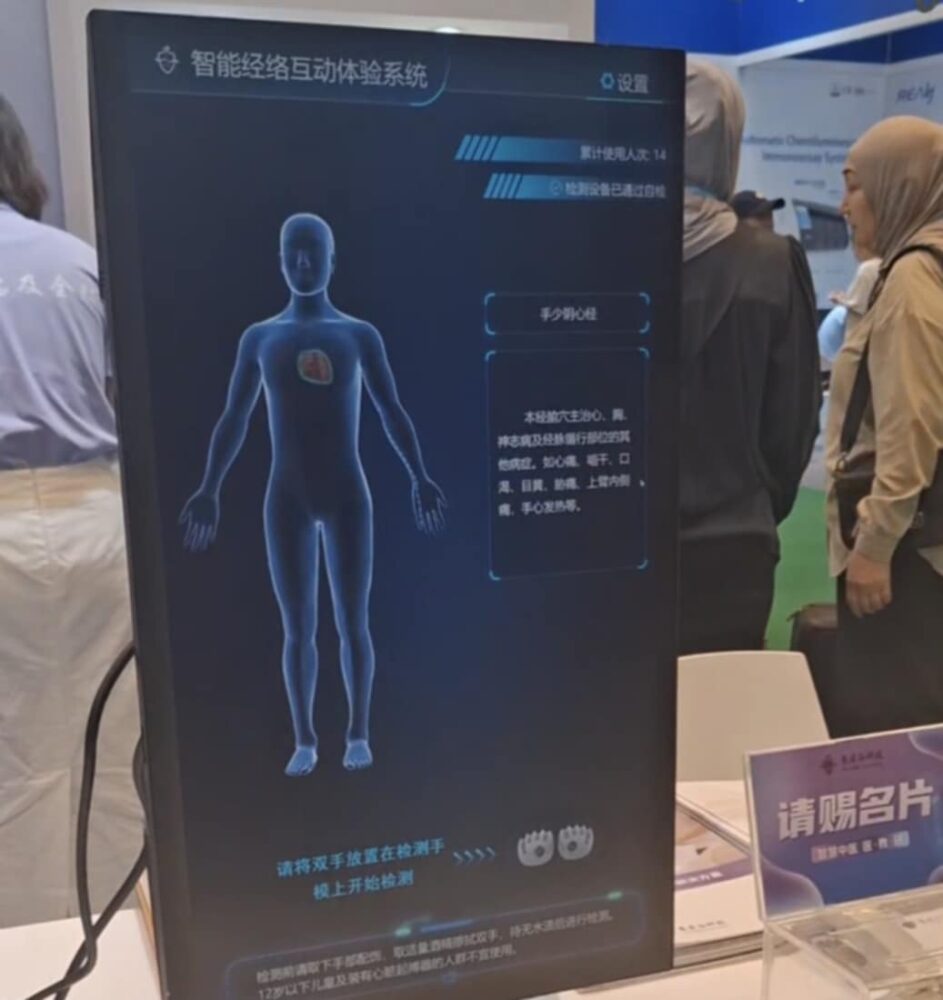
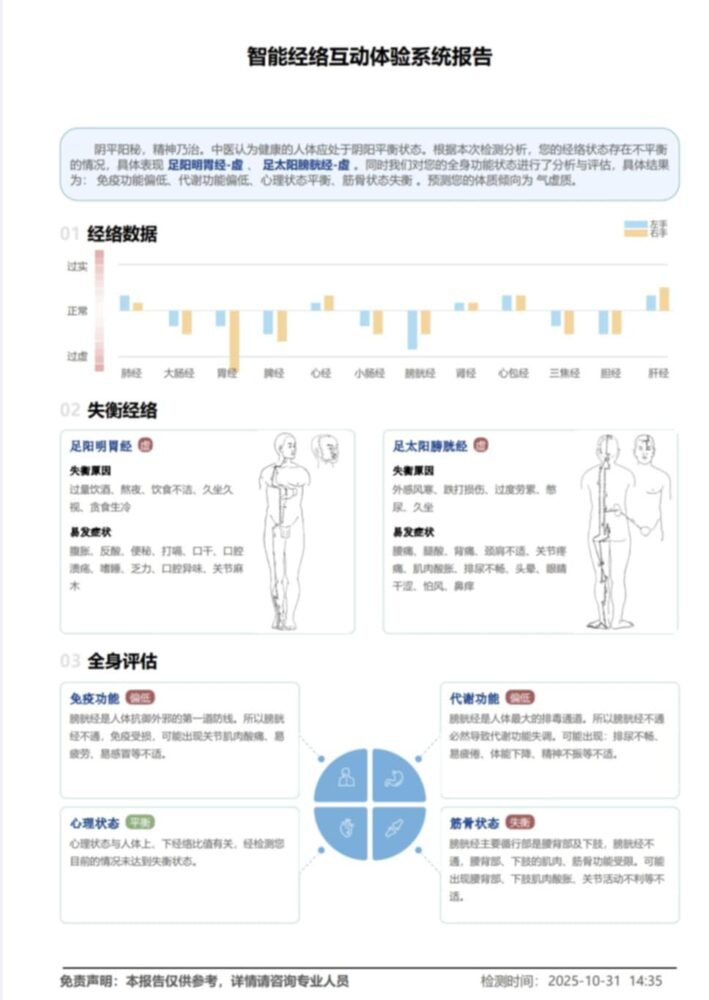
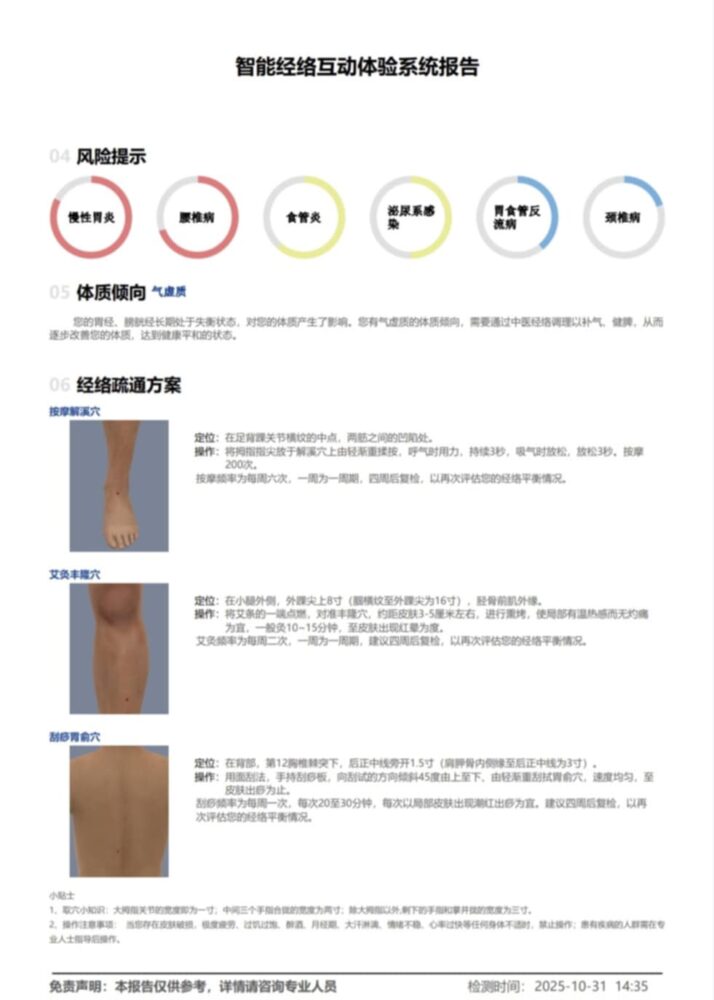
DeyeeRobot: The AI Physio with a Human Touch
DeyeeRobot embodies the future of recovery. Founded in 2019, Deyee Robot Technology Co., Ltd. has built what it calls the world’s first end-to-end large-model physiotherapy robot, integrating deep learning, 3D vision, and 6D force control.
In practice, that means a machine capable of understanding human motion, detecting muscle resistance, and adjusting its therapeutic actions in real time—an AI that doesn’t just execute commands, but perceives. Visitors to the Canton Fair watched as the robot mimicked the careful, responsive motions of a seasoned physical therapist, all while logging biometric data for clinician review.
According to Deyee’s engineers, the robot’s neural model was trained on thousands of hours of physiotherapy data. The goal isn’t to replace human therapists but to extend their reach—standardizing repetitive exercises, reducing fatigue, and ensuring consistency across sessions.
As rehabilitation workloads rise alongside aging populations, such intelligent systems could become indispensable. DeyeeRobot’s technology hints at a new model of care: therapists as supervisors of intelligent systems that perform precision-guided therapy with tireless accuracy.
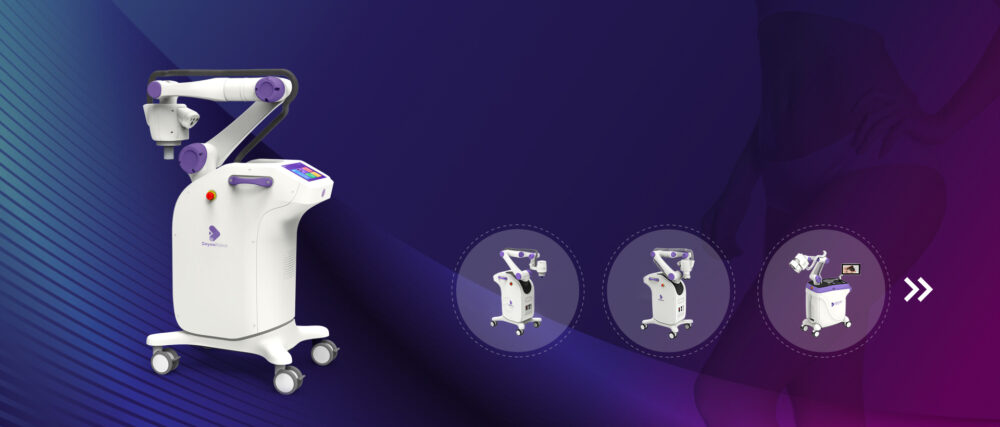
Diagens KayoFlow: Automation at the Cellular Level
While others focused on patient-facing innovation, Hangzhou Diagens Biotechnology Co., Ltd. turned its lens inward—deep into the laboratory. Its KayoFlow® system represents the world’s first fully automated, unattended cell experiment line, a milestone that drew both curiosity and admiration from visiting researchers.
The KayoFlow platform is designed to handle every step of a cytogenetics workflow: sample processing, reagent management, centrifugation, slide preparation, and staining—tasks that traditionally consume hours of manual labor. The system’s components have already been approved by China’s National Medical Products Administration (NMPA), giving the technology a foothold for clinical application.
Automation of this kind promises to reshape diagnostics as profoundly as AI has reshaped imaging. In cytogenetics and pathology, where precision and reproducibility are critical, KayoFlow’s “unattended” model could eliminate variability and dramatically increase throughput. For laboratory directors, the benefits are obvious: fewer errors, faster results, and technicians free to focus on interpretation rather than repetition.
At a time when demand for genetic and cellular testing is soaring, Diagens’ KayoFlow could mark the beginning of an era where laboratories think—and work—entirely on their own.
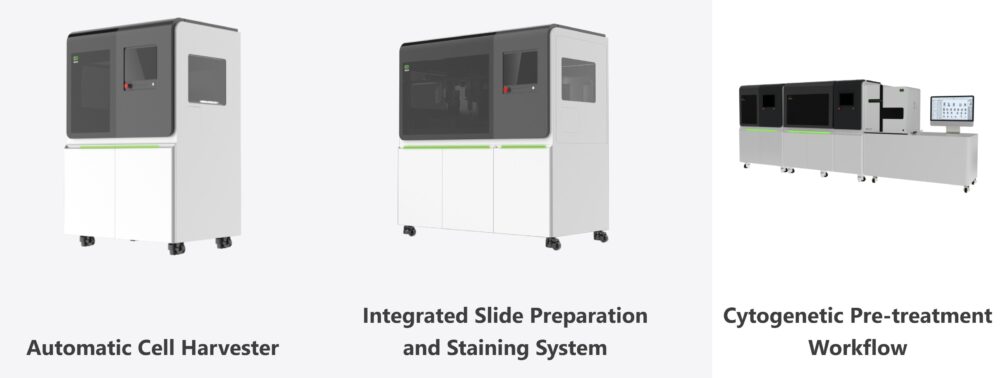
Image: KayoFlow System. Courtesy of Diagens.
The New Intelligence in Medicine
Together, these companies form a snapshot of a rapidly evolving healthcare ecosystem—one where prevention, precision, and automation merge under the guidance of artificial intelligence.
What stood out most at this year’s Canton Fair wasn’t just the novelty of these technologies, but their practicality. They’re not speculative visions; they’re real systems ready—or nearly ready—for clinical use.
The debut of the Intelligent Healthcare Pavilion at the 138th Canton Fair signals China’s determination to lead this next chapter of medical innovation. For medical professionals worldwide, it serves as both inspiration and a challenge: to integrate these tools responsibly, measure their true clinical value, and ensure that in the quest for smarter care, the human element of medicine remains firmly at the center.
